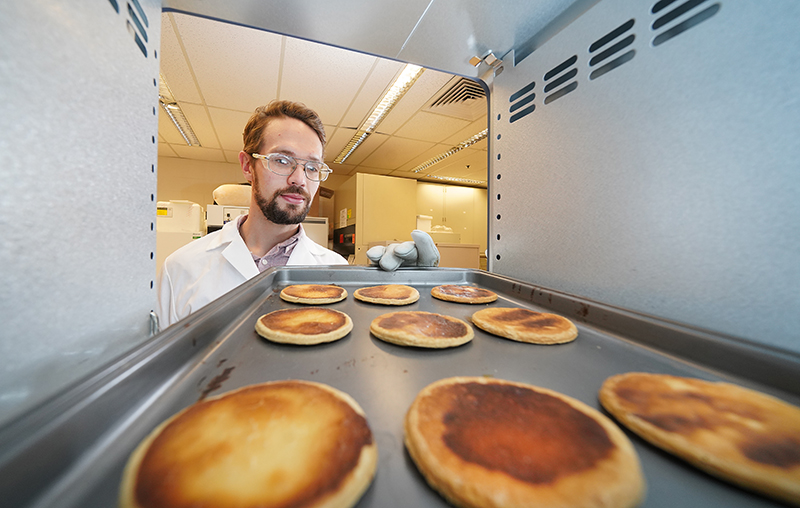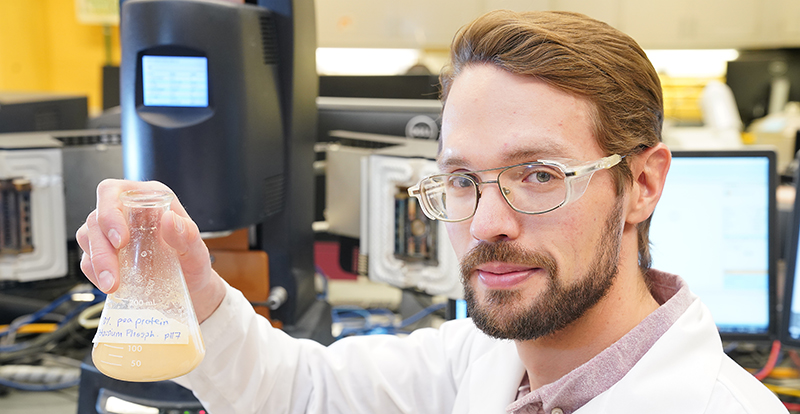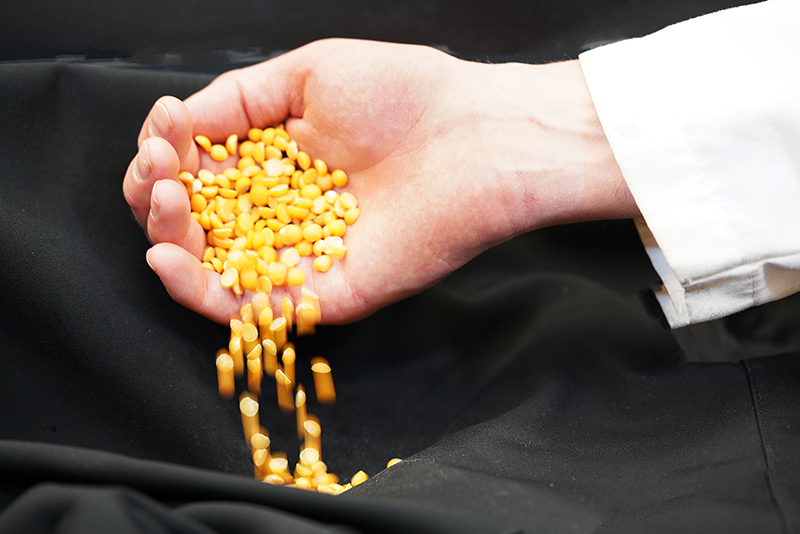Harrison Helmick - Graduate Ag Research Spotlight
I believe there’s a lot of good research done in academia that isn’t communicated effectively to industry members. I try to keep more of an industry-focused slant to my research.
- Harrison Helmick, PhD student, Department of Food Science
THE STUDENT
Harrison Helmick started working at WheatFields Bakery in his hometown of Lawrence, Kansas, while he was still in high school. He felt like the after-school job was a good fit for his interest in cooking and confirmed his interest in learning more. Helmick earned a degree in bakery science at Kansas State University in 2016 before spending a year in Taiwan, where his then-girlfriend (now wife) taught English and Helmick took an intensive Chinese language course. When the couple returned to the U.S., he joined the nation’s largest commercial baking company, Bimbo Bakeries USA. After working third shift, 9 pm to 6 am, for two years, and developing interests in big data and process improvement, Helmick began searching for a graduate program. He came to Purdue in August 2019 to work under the advisorship of Jozef Kokini, professor of food science and Scholle Endowed Chair of Food Processing. Helmick’s experience in industry, where his job focused on improving efficiency by seconds, enabled him to approach graduate study “with a sense of urgency and an ability to see problems and steps to solutions,” he says.
THE RESEARCH
Helmick uses bioinformatics to study the processing of plant-based pea protein into gels and emulsions that may be used to improve the texture of food. Specifically, he investigates how cold denaturation impacts the protein’s structure and, in turn, its end use characteristics. Much of this work is done through modeling, starting with a 3-D structure of the protein and then writing computer code in Python to analyze it. “Data science is one of my favorite things I do as part of my research,” Helmick says. Understanding how these proteins act in a range of applications and predicting their functionality in foods could lead to new applications and ultimately, to healthier foods that cost less to produce. Helmick also has researched wheat dough rheology, which led to his first publication.
OPPORTUNITIES
Helmick says he has benefited from and enjoyed mentoring four undergraduates – two food science majors and two ABE majors — and helping them develop their research projects. He is first author on six published papers so far. A blog he started based on his research and reading led to an industry trade magazine offering Helmick a position as a monthly contributor on the applicability of different types of plant-based proteins. “That’s been a really good opportunity to communicate to industry,” he says. “It forces me to get out of the cloud and be more hands-on.” His position on the board American Society of Baking also helps him stay in touch with industry.
FUTURE PLANS
While he intends to maintain ties to academia after he completes his doctoral program, Helmick expects to land in a position in industry, perhaps a technical role that allows him to work at the interface of data science and food science. “Growth and learning is my only non-negotiable,” he says. In his spare time, he and his wife enjoy cooking together — Asian dishes from their time in Taiwan as well as southern recipes from his mother’s Mississippi origins. He also enjoys playing disc golf.






